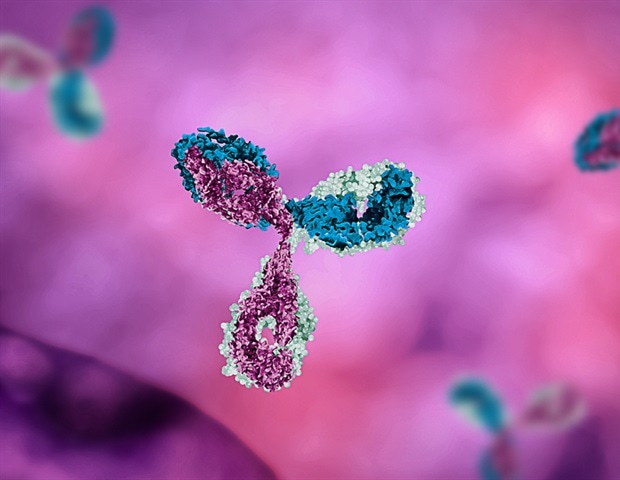The Global Virus Network (GVN), representing eminent human and animal virologists from 80+ Centers of Excellence and Affiliates in 40+ countries, has published a comprehensive analysis and call-to-action in The Lancet Regional Health—Americas on the North American avian influenza virus, or H5N1, outbreak. The GVN calls on world governments to address the threat of H5N1 avian influenza by enhancing surveillance, implementing biosecurity measures, and preparing for potential human-to-human transmission. "Understanding the current landscape of H5N1 infections is critical for effective prevention and response," said Sten H.
Vermund, MD, Ph.D., chief medical officer of the GVN and dean of the USF Health College of Public Health at the University of South Florida, U.

S. "The virus's ability to infect both animals and humans, combined with recent genetic changes, underscores the importance of proactive surveillance and rapid response measures." The outbreak has affected nearly 1,000 dairy cow herds and resulted in more than 70 human cases, including the first confirmed death in the U.
S. The U.S.
poultry industry is at significant risk, particularly in areas with high-density farming and where personal protective practices may be lacking. The highly pathogenic influenza virus is now circulating in all 50 states and Canada, resulting in the loss or culling of more than 168 million poultry in the U.S.
since 2022. While human-to-human transmission is not documented, experts warn that virus mutations and reassortments, or combining two flu viruses, could increase transmissibility. "Genomic surveillance is pivotal in tracking viral evolution and informing response strategies," said Marion Koopmans, DVM, Ph.
D., center of excellence director at the GVN and head of the department of viroscience at Erasmus Medical Center, the Netherlands. "Continued investment in surveillance at the human-animal interface, and immediate sharing of unusual field observations and sequence data is essential for researchers worldwide to monitor virus dynamics effectively.
" Dr. Koopmans is a U.S.
and Dutch National Academy of Sciences member. She is highly regarded for her research on emerging infectious diseases and as a scientific advisor to policymakers at national and international levels. The GVN virologists underscore the need for improved pandemic preparedness, drawing on lessons learned from the SARS-CoV-2 pandemic and previous outbreaks.
They advocate for a multi-faceted approach to pandemic preparedness, which includes: "Initiatives should focus on enhancing biosecurity measures in agricultural settings and educating the public about safe handling of poultry products and potential risks associated with contact with infected animals," said Peter Palese, Ph.D., center of excellence director at the GVN and Horace W.
Goldsmith Professor of the department of microbiology at the Icahn School of Medicine at Mount Sinai. Dr. Palese is a world leader in influenza research and a U.
S. National Academy of Sciences member. "Given the growing circulation of H5N1 among mammals, the GVN calls for urgent efforts to understand and interrupt transmission in cattle through herd management and potential vaccination," said Ab Osterhaus, DVM, Ph.
D., center of excellence director at the GVN and founding director of the Center of Infection Medicine and Zoonosis Research at the University of Veterinary Medicine Hannover, Germany. "Strengthening surveillance at animal-human interfaces is crucial, as current monitoring efforts are insufficient to guide effective prevention strategies.
" Dr. Osterhaus is internationally regarded for his work on animal viruses, SARS, MERS, and H5N1. He is a co-founder of the global One Health Community, and a Dutch and German National Academies of Sciences member.
While some surveillance of H5N1 has been carried out, the GVN highlights the lack of comprehensive testing and monitoring to assess the virus's spread and risks to public health. "A robust nationwide monitoring system is essential to quickly detect and quarantine affected animals and implement preventive measures to curb further spread and human infections," said Elyse Stachler, Ph.D.
, member of the GVN and a research scientist at the Broad Institute of MIT and Harvard, U.S. "Further, we believe it is crucial to maintain trust and stakeholder buy-in for monitoring programs, particularly from farm workers.
" "We are advocating for community-driven strategies to ensure the successful implementation of vaccines, if necessary," said Christian Bréchot, MD, Ph.D., vice chair of the board of directors and president emeritus of the GVN and director of the Microbiomes Institute and senior associate dean for research in global affairs in the USF Health Morsani College of Medicine, U.
S. "The situation with H5N1 demands heightened vigilance and collaboration across public health sectors. Early detection and robust surveillance are critical to prevent further spread.
" More information: Enhancing the response to avian influenza in the US and globally, The Lancet Regional Health—Americas (2025). www.sciencedirect.
com/science/ ...
2667-193X(25)00110-3.
Health

Virologists issue urgent call to global action as H5N1 avian flu threat rises

The Global Virus Network (GVN), representing eminent human and animal virologists from 80+ Centers of Excellence and Affiliates in 40+ countries, has published a comprehensive analysis and call-to-action in The Lancet Regional Health—Americas on the North American avian influenza virus, or H5N1, outbreak.















